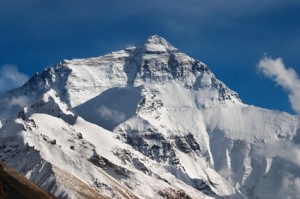Altitude Affects Blood Pressure, Italian Study Finds
 Do you have high blood pressure? According to new research from a team of Italian scientists, spending time in high-altitude areas could increase your blood pressure, exposing you to a number of health risks.
Do you have high blood pressure? According to new research from a team of Italian scientists, spending time in high-altitude areas could increase your blood pressure, exposing you to a number of health risks.
A recent study carried out on Mount Everest has revealed that blood pressure rises with altitude. Climbers that ascend to significant heights have higher blood pressure levels at altitude than they otherwise would at or close to sea level.
The study, published in the European Heart Journal, also shows that drugs used to treat high blood pressure become less effective at altitude, as the heart is forced to work harder to extract the same amount of oxygen from the air.
A team of Italian researchers took part in an expedition with 47 climbers located at Mount Everest base camp. Participants in the study wore portable blood pressure monitors and had their blood pressure monitored while climbing to the camp.
Upon reaching the camp, participants in the study had an increase of 14 mmHg on average in systolic blood pressure and 100 mmHg on average in diastolic blood pressure compared to their readings at the beginning of the study.
Participants were also randomly selected to receive an 80 mg dose of the frequently prescribed blood pressure drug telmisartan. While the drug lowered blood pressure at sea level, it had no significant effect at the 17,700 feet altitude of the camp.
The scientists responsible for the study believe that it shows people who spend time at high altitudes for work or leisure must be aware of its implications for their blood pressure and the efficacy of any blood pressure medication they use.
While the altitude of the Mount Everest base camp is certainly an outlier, there are many people with high blood pressure who actively use medication to control their health living at high altitudes where its usefulness as a treatment may be lowered.

